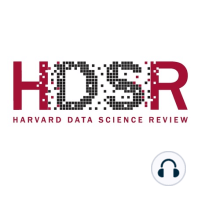44 min listen

Differential Privacy for the 2020 U.S. Census: Can We Make Data Both Private and Useful? (Part 2)
Differential Privacy for the 2020 U.S. Census: Can We Make Data Both Private and Useful? (Part 2)
ratings:
Length:
35 minutes
Released:
Aug 10, 2022
Format:
Podcast episode
Description
For today’s episode we embark on part two of our discussion on the U.S. Census.
Protecting the data privacy of survey respondents has always been a central consideration for the U.S Census Bureau, and throughout its history, many methods have been developed and implemented. For the 2020 Census, the Bureau adopted a new form of privacy protection—differential privacy which was received with mixed reaction. To further understand why the Census Bureau adopted this new form of privacy protection and to help explore the concerns raised about differential privacy, we invited two experts who represent both sides of the debate and who each contributed to the Harvard Data Science Review special issue on the 2020 U.S. Census.
Our guests are:
John Abowd, Associate Director for Research and Methodology, Chief Scientist at the U.S. Census Bureau, and author of the The 2020 Census Disclosure Avoidance System TopDown Algorithm for HDSR.
danah boyd, founder and president of Data & Society, Principal Researcher at Microsoft, Visiting Professor at New York University, and author of Differential Perspectives: Epistemic Disconnects Surrounding the U.S. Census Bureau’s Use of Differential Privacy for HDSR.
Protecting the data privacy of survey respondents has always been a central consideration for the U.S Census Bureau, and throughout its history, many methods have been developed and implemented. For the 2020 Census, the Bureau adopted a new form of privacy protection—differential privacy which was received with mixed reaction. To further understand why the Census Bureau adopted this new form of privacy protection and to help explore the concerns raised about differential privacy, we invited two experts who represent both sides of the debate and who each contributed to the Harvard Data Science Review special issue on the 2020 U.S. Census.
Our guests are:
John Abowd, Associate Director for Research and Methodology, Chief Scientist at the U.S. Census Bureau, and author of the The 2020 Census Disclosure Avoidance System TopDown Algorithm for HDSR.
danah boyd, founder and president of Data & Society, Principal Researcher at Microsoft, Visiting Professor at New York University, and author of Differential Perspectives: Epistemic Disconnects Surrounding the U.S. Census Bureau’s Use of Differential Privacy for HDSR.
Released:
Aug 10, 2022
Format:
Podcast episode
Titles in the series (39)
Pollsters: The Discoverers and Guardians of Public Opinion: This episode focuses on the art and science of measuring public opinion. We discuss the challenges pollsters face when trying to predict how public opinion may change over time, review both the innovative and time-tested methods of polling and discover w... by Harvard Data Science Review Podcast